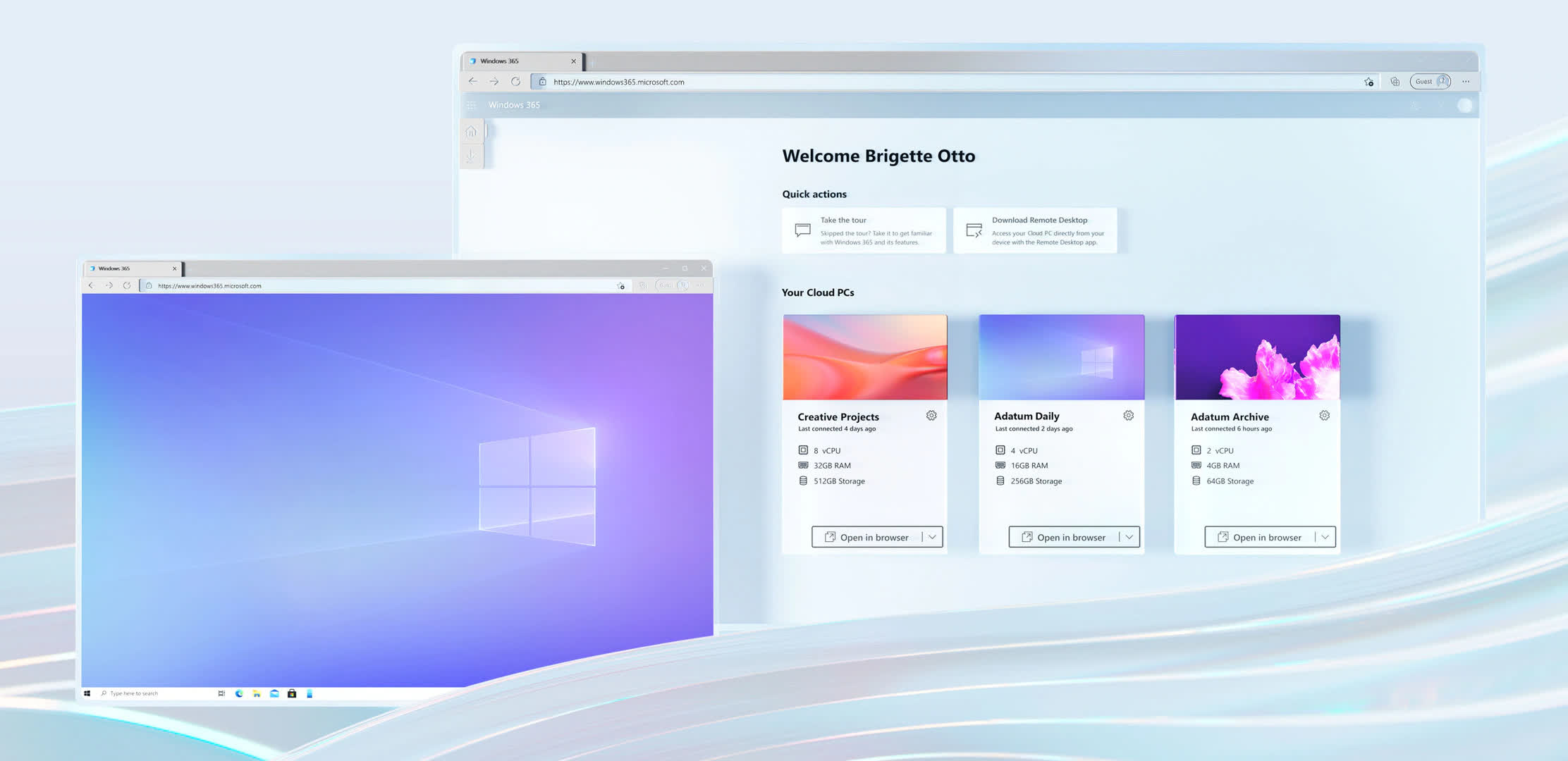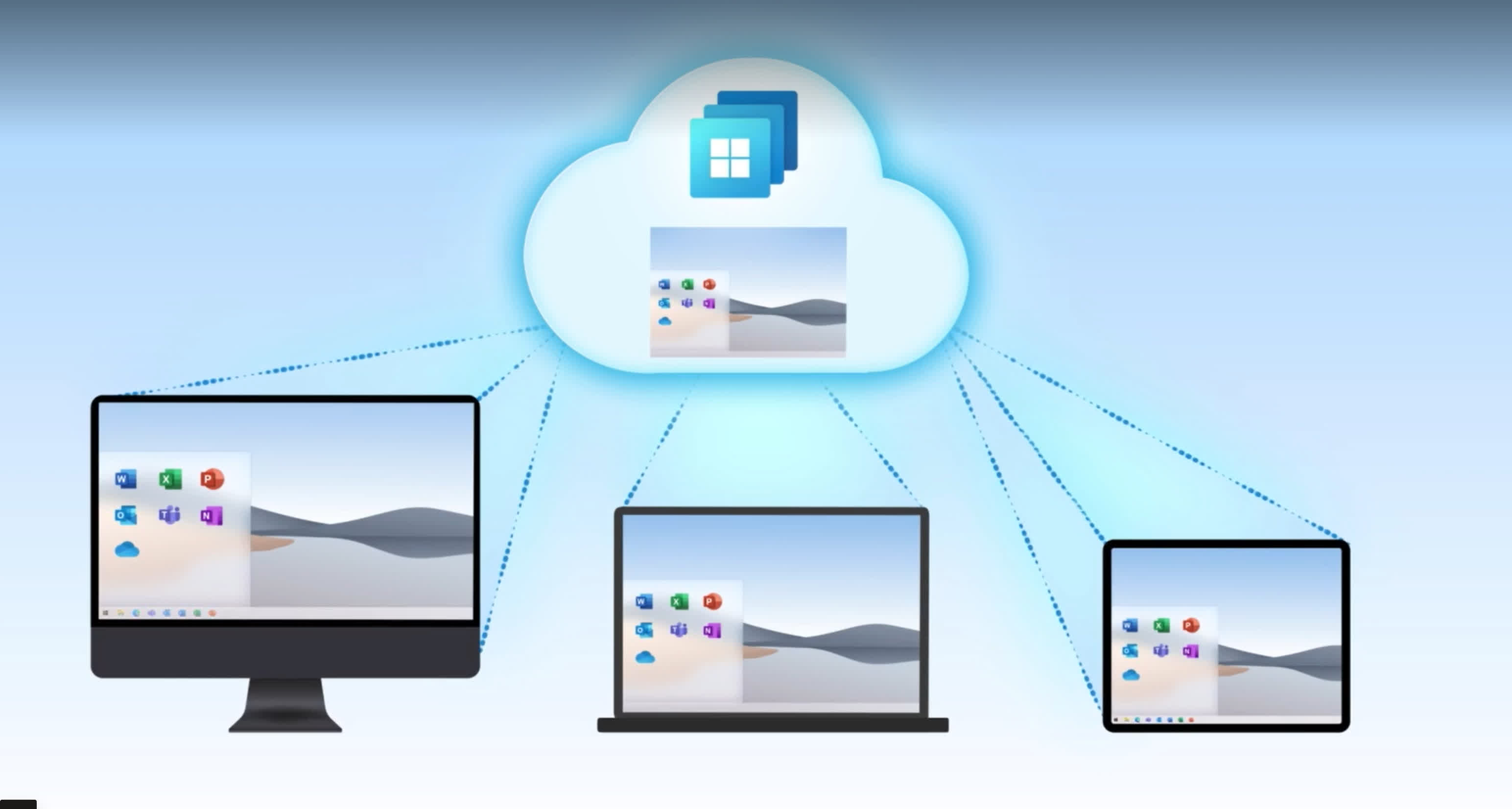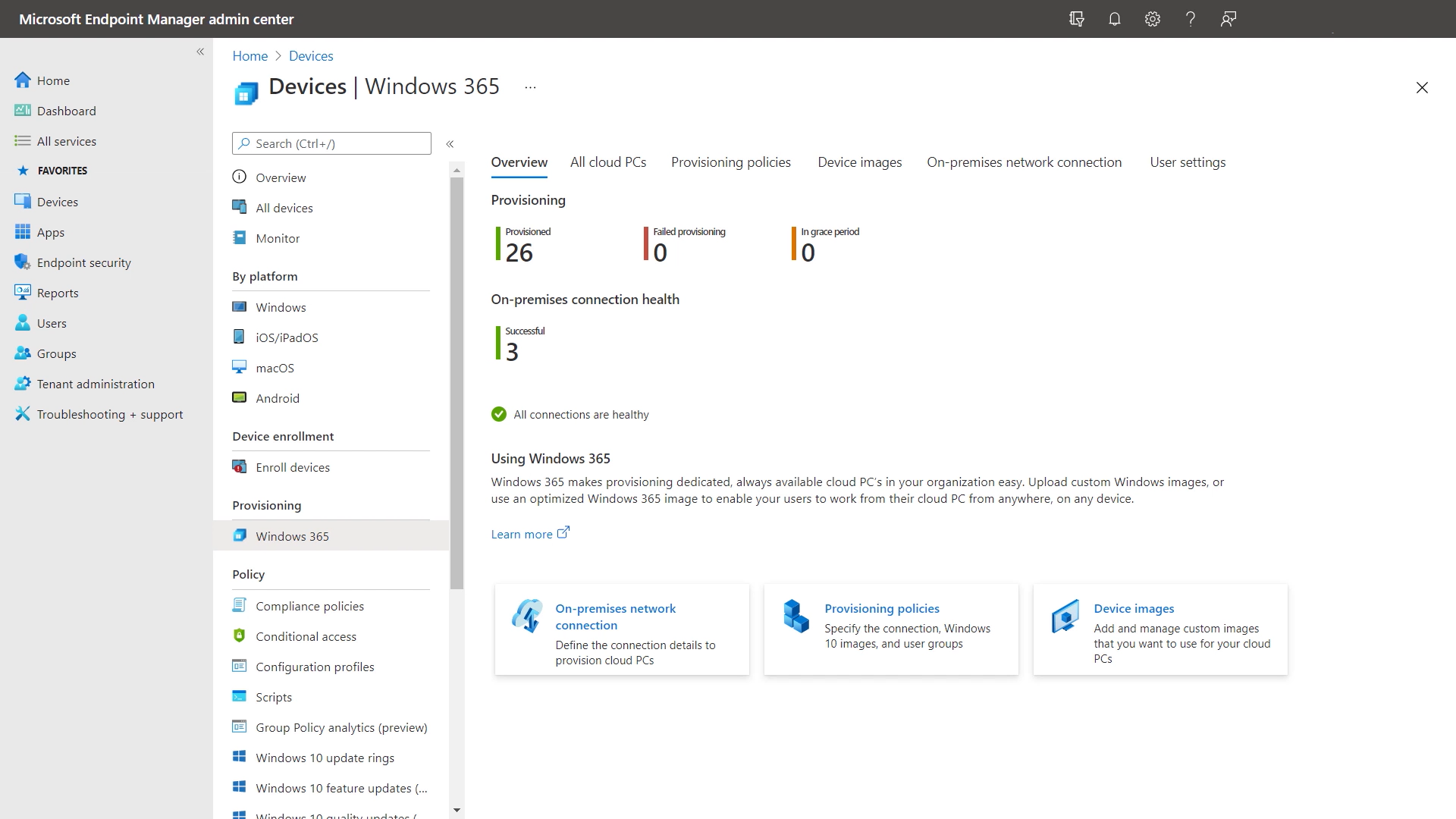
The idea of computing via the cloud has become so commonplace through the pandemic that virtually no one gives it much of a thought anymore. Application suites like Office 365, Microsoft 365, and Google Workspace, communication tools like Zoom, Teams, and Webex, and even file storage services like OneDrive, DropBox, or Google Drive are all just part of how we get things done these days.
For most of us, however, the operating system through which we use these applications and access our files typically comes through the client device: Windows 10 or MacOS on PCs, iOS or Android on smartphones and tablets, etc.
With the launch of Microsoft’s latest cloud service—dubbed Windows 365—however, Microsoft is now streaming the Windows OS and full PC experience from Microsoft’s Azure cloud infrastructure to any type of connected computing device, from smartphone to PC, running any major OS. Hence, the Cloud PC.
Truth be told, the concept isn’t exactly new—in fact, far from it. There have been numerous variations on delivering a “desktop” experience from powerful remote computing resources for several decades, dating back to mainframes and terminals, through thin clients and associated servers, to virtual desktops delivered over the cloud via tools like Citrix Workspace.
In fact, Windows 365 is essentially a simplified version of Microsoft’s Azure Virtual Desktop offering (which will continue). Win365 is designed for what the company described as the 80% of organizations that are interested in desktop virtualization-type services but lack personnel with the very specific skills necessary to run sophisticated VDI environments.
One other important point of clarification is that Microsoft’s current concept of a Cloud PC is not a physical device—though those are likely to come in the future—but rather a cloud-delivered PC experience. The concept of a “cloud PC” has been bandied about by numerous PC and chip makers for many years. We may finally see future hardware designs that are optimized for the cloud-delivered desktop experience offered by Windows 365, but not with the initial launch.

Windows 365 serves a full Microsoft Windows experience – including personal apps, data and settings – from the cloud to any device with an internet connection. Image courtesy of Microsoft.
What Windows 365 does offer is an easily configurable, flexible way to let people working for businesses, schools, and other organizations to run a consistent Windows experience across whatever devices they have access to—even a regular Windows PC.
The basic concept is that these organizations can create standardized Windows 10 desktop environments (or Windows 11 once it becomes available later this year), complete with the necessary applications, settings, security protocols, and file access needed, and then make these standardized environments available to whatever groups of workers desired for whatever time frame desired.
Unlike previous virtual desktop-based solutions, however, Windows 365 keeps the process of configuring these cloud PC desktops simple, by limiting options to a few key choices. People who need to access these resources can then launch a simple application on whatever devices they have available and get access to their cloud-delivered Windows desktop. If they switch to another device or start working from another location, the experience—down to the backgrounds, open windows, etc.—remains consistent.

For organizations with seasonal workers, project-based temps, etc., this is obviously an ideal solution, because it lets these organizations turn on and turn off access to applications, shared files, etc. on an as-needed basis.
Even businesses that don’t have these kinds of part-time employees can benefit by virtue of things like letting employees use personal devices to access their work resources in a secure, separated way. In addition, there are options to essentially provide “super-powered” PCs remotely to workers who need them for demanding applications like 3D modelling, graphic design, coding, etc.
By essentially providing access to more cloud-based computing resources (through the simple Endpoint Manager console that Microsoft provides admin access to as part of the Win365 offering), some users can get access to more computing power than they could get from even the most well-configured local PC. In fact, Microsoft has added what they call a new Watchdog Service that’s constantly monitoring the performance of all Windows 365-connected systems and can provide tools and suggestions on how to fix any issues that may arise.
Despite these assurances, veterans of previous VDI technologies may raise performance-related concerns, because there have certainly been many employees who suffered slowly and painfully through poorly configured virtual desktop solutions in the past. In order to address that, Microsoft said that one other key change it is making with Windows 365 is essentially “widening the pipe” between the client device and cloud-based computing resources.
Obviously, the speed, quality, and consistency of any broadband connection between a given device and the internet is going to have a potentially even more profound impact on performance, but Microsoft claimed that it has optimized the client-to-cloud connection for Windows 365 to ensure a high-quality experience.
The company has also made several important security enhancements, including a number of simplified baseline settings that leverage tools like Microsoft Defender. In addition, the company claims its security policies are built around zero trust and least privileged access principles, while also offering support for multi-factor authentication through Azure Active Directory (AD). From a device management perspective, the revised Endpoint Manager console lets Cloud PCs and physical PCs be managed side-by-side in an intuitive manner, making it approachable even for small businesses with limited IT resources.
Given the growing use of other cloud-based computing services—such as Microsoft’s own OneDrive—it’s certainly easier now for workers to navigate the potential complexities of hybrid working environments than it has been in the past. Still, for many organizations, those types of capabilities simply aren’t enough, and the need for an even more flexible and far-reaching service like Windows 365 makes a great deal of sense.
Cloud-delivered virtual desktops have proven to be a very effective tool for many more advanced IT organizations throughout the pandemic. They also appear to be a powerful starting point as we enter the new world of hybrid work. Previous complications have certainly limited the use of virtualized desktop systems up until now, so it’s good to see Microsoft bring these Cloud PC-based computing models to a wider audience with Windows 365.
Bob O’Donnell is the founder and chief analyst of TECHnalysis Research, LLC a technology consulting firm that provides strategic consulting and market research services to the technology industry and professional financial community. You can follow him on Twitter @bobodtech.
https://www.techspot.com/news/90423-microsoft-windows-365-moves-pc-cloud.html